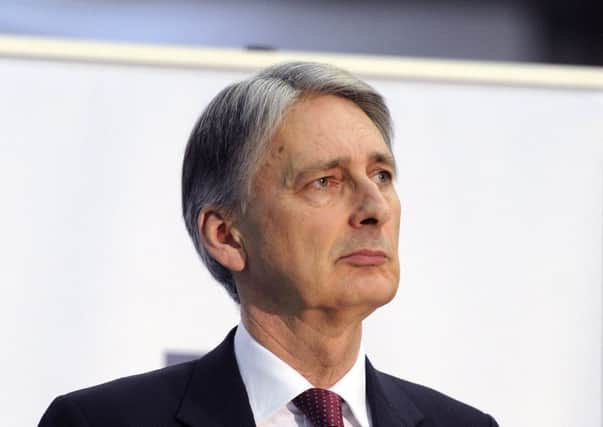Martin Flanagan: CBI seeks to cement confidence
This article contains affiliate links. We may earn a small commission on items purchased through this article, but that does not affect our editorial judgement.


It is that consumer confidence has kept the UK economic show on the road since June’s Brexit vote shook business confidence; but that only ramped up public investment and tangible progress on infrastructure improvement – both timescales and shovels in the ground – will give business the confidence to invest and grow in what the CBI calls a climate of “huge uncertainty” since the EU referendum.
The Chancellor, freed from the doctrinaire commitment of balancing the public finances by 2020, is pretty much certain to give business some of the things for which it is asking. That’s politics.
Advertisement
Hide AdAdvertisement
Hide AdBut the books are still shaky, so it is very likely that the CBI will not get all it wants. At the top of CBI director-general Carolyn Fairbairn’s list is a £6 billion boost in public investment annually for the rest of this parliament. This would equate to about 2 per cent of GDP. Projects name-checked include the full dualling of the A1 from Scotland to Newcastle.
And it is true, if you don’t invest in long-term infrastructure at times of rock-bottom low interest rates when would you?
The CBI wants an increase in the Annual Investment Allowance to £1 million until the end of 2018, a move that would particularly benefit medium-sized businesses, the oft-overlooked part of the UK business landscape where big and small tend to be beautiful.
Not unreasonably, the CBI is also asking that new investment in plant, machinery, new technology and energy efficiency should be exempt from business rates calculations. Meanwhile, Britain’s bugbear for a long time has been poor rates of productivity, and Hammond is being asked to address this by committing publicly to a long-term target of research and development (R&D) spending of 3 per cent of GDP.
While ambitious in the current fiscal climate, there is a lot to be said for this, at least as an aspiration, as public spending on R&D often encourages companies to do the same and encourages foreign investment in the UK. Essentially, business is pressing the Chancellor to lift his eyes to an uncertain medium-term after a summer that was economically less painful than expected in the immediate aftermath of the Brexit vote.
